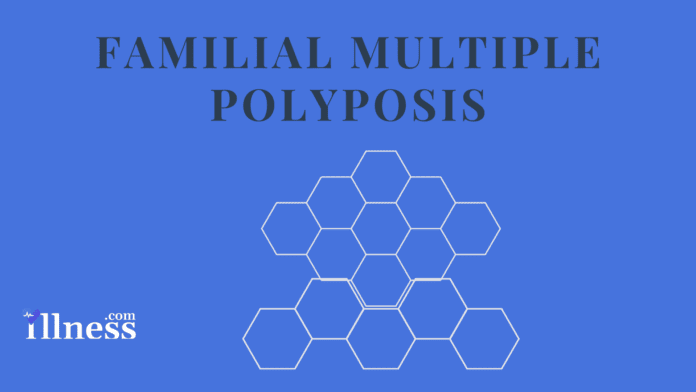Overview Of Familial Multiple Polyposis
Familial multiple polyposis is an inherited disorder characterized by cancer of the large intestine (colon) and rectum. People with the classic type may begin to develop multiple noncancerous (benign) growths (polyps) in the colon as early as their teenage years. Unless the colon is removed, these polyps will become malignant (cancerous). The average age at which an individual develops colon cancer in classic familial multiple polyposis is 39 years. Some people have a variant of the disorder, called attenuated familial multiple polyposis, in which polyp growth is delayed. The average age of colorectal cancer onset for attenuated familial multiple polyposis is 55 years.
In people with this condition, the number of polyps increases with age, and hundreds to thousands of polyps can develop in the colon. Also of particular significance are noncancerous growths called desmoid tumors. These fibrous tumors usually occur in the tissue covering the intestines and may be provoked by surgery to remove the colon. Desmoid tumors tend to recur after they are surgically removed. In both classic familial multiple polyposis and its attenuated variant, benign and malignant tumors are sometimes found in other places in the body, including the duodenum (a section of the small intestine), stomach, bones, skin, and other tissues. People who have colon polyps, as well as growths outside the colon, are sometimes described as having Gardner syndrome.
A milder type, called autosomal recessive familial multiple polyposis, has also been identified. People with the autosomal recessive type of this disorder have fewer polyps than those with the classic type. Fewer than 100 polyps typically develop, rather than hundreds or thousands. The autosomal recessive type of this disorder is caused by mutations in a different gene than the classic and attenuated types.
Commonly Associated With
- adenomatous familial polyposis
- adenomatous familial polyposis syndrome
- adenomatous polyposis coli
- familial multiple polyposis syndrome
- FAP
- MYH-associated polyposis
Causes Of Familial Multiple Polyposis
Mutations in the APC gene cause both classic and attenuated forms of this condition. These mutations affect the ability of the cell to maintain normal growth and function. Cell overgrowth resulting from mutations in the APC gene leads to the colon polyps seen in familial multiple polyposis. Although most people with mutations in the APC gene will develop colorectal cancer, the number of polyps and the time frame in which they become malignant depend on the location of the mutation in the gene.
Mutations in the MUTYH gene cause autosomal recessive familial multiple polyposis (also called MYH-associated polyposis). Mutations in this gene prevent cells from correcting errors that are made when DNA is copied (DNA replication) in preparation for cell division. As these errors build up in a person’s DNA, the likelihood of cell overgrowth increases, leading to colon polyps and the possibility of colon cancer.
Other
The reported incidence of familial multiple polyposis varies from 1 in 7,000 to 1 in 22,000 individuals. This condition can have different inheritance patterns.
When familial multiple polyposis results from mutations in the APC gene, it is inherited in an autosomal dominant pattern, which means one copy of the altered gene in each cell is sufficient to cause the disorder. In most cases, an affected person has one parent with the condition.
When this condition results from mutations in the MUTYH gene, it is inherited in an autosomal recessive pattern, which means both copies of the gene in each cell have mutations. Most often, the parents of an individual with an autosomal recessive condition each carry one copy of the mutated gene but do not show signs and symptoms of the condition.



